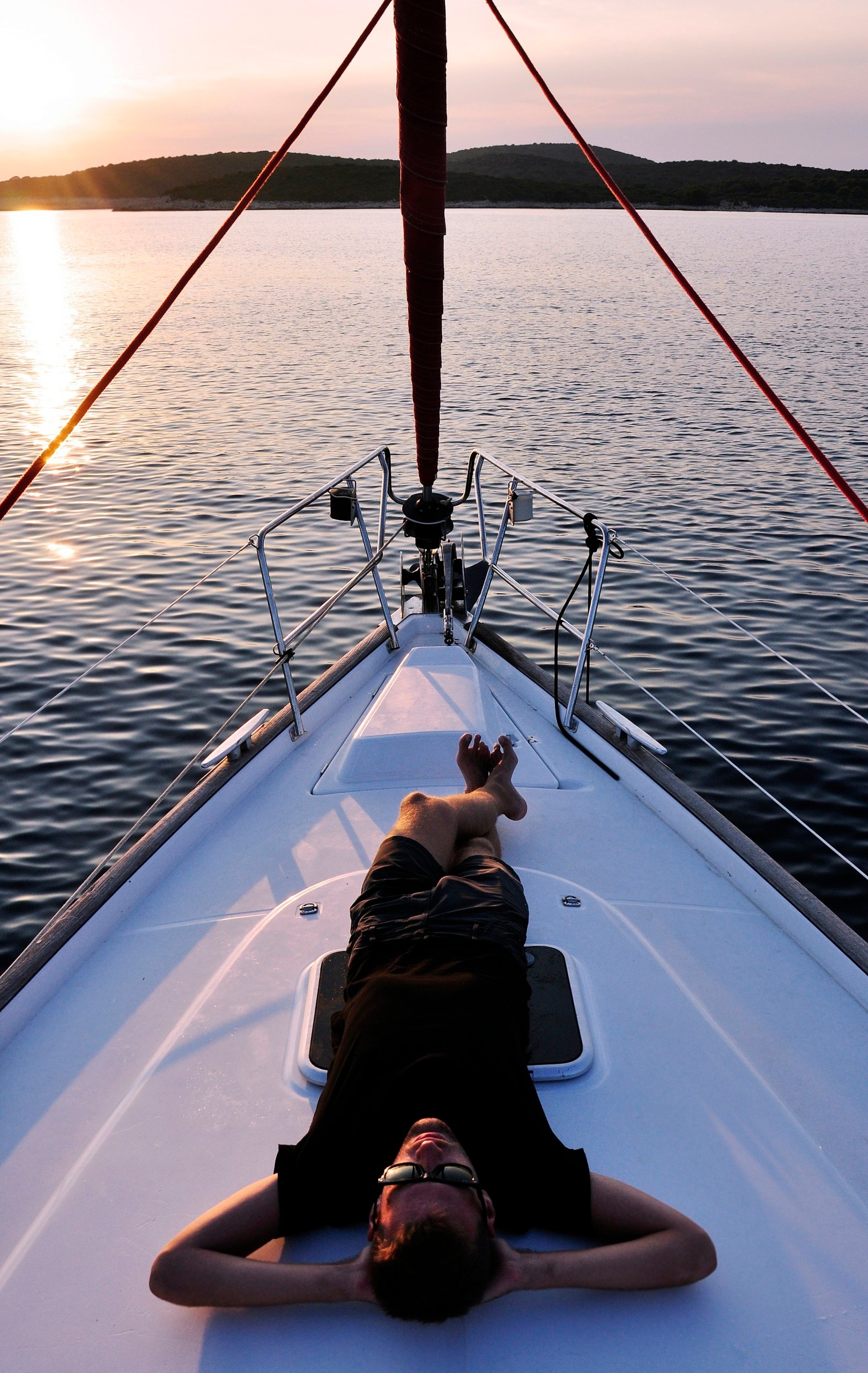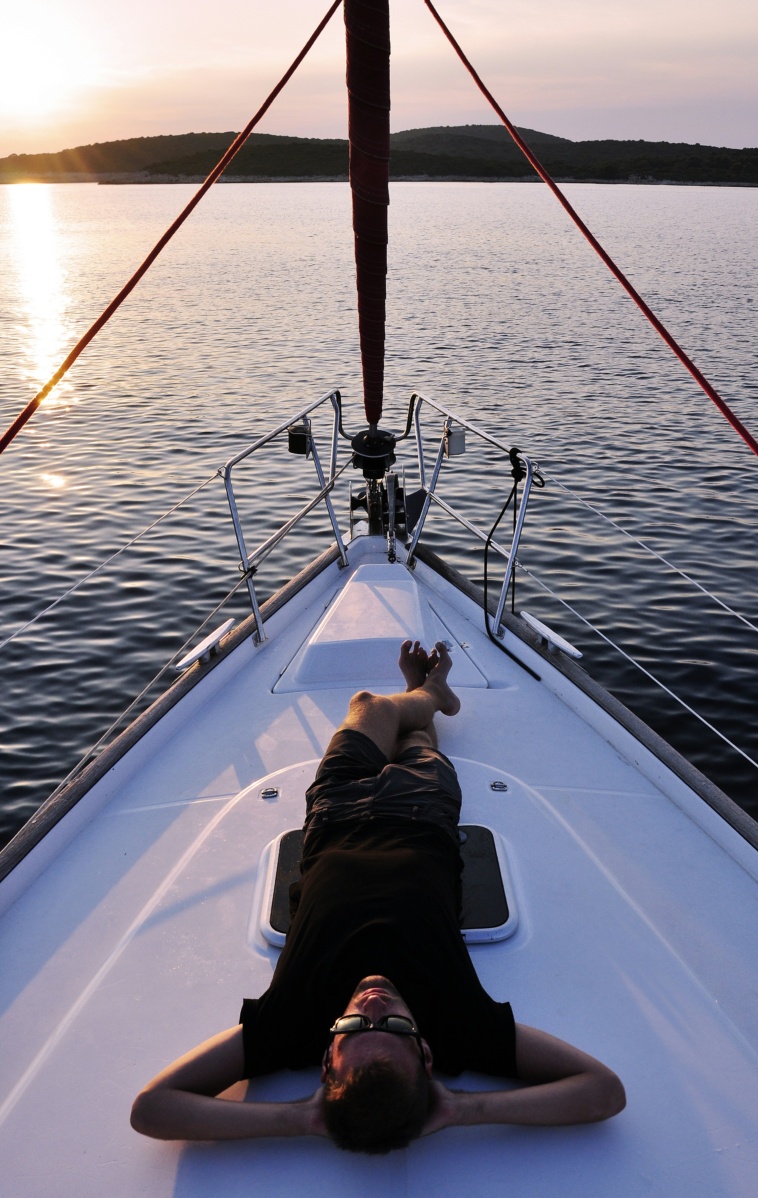Are you considering renting a pontoon boat for a day of fun on the water? If so, you might be wondering if there are any regulations regarding noise levels that you need to be aware of. When it comes to enjoying your time on a pontoon boat, it’s important to strike a balance between having a good time and respecting the tranquility of the surrounding environment. In this article, we will explore whether there are any rules on noise levels on pontoon boat rentals and how you can ensure a delightful experience for both yourself and others on the water.
General Noise Regulations
Understanding the noise regulations for pontoon boat rentals
When it comes to renting pontoon boats, noise regulations play a crucial role in ensuring a peaceful and enjoyable experience for everyone. Understanding these regulations is essential for both boat owners and renters. Noise regulations are put in place to preserve the tranquility of the waterways and protect wildlife and shoreline residents from excessive noise that can disrupt their peaceful environment.
To comply with noise regulations, it is important to familiarize yourself with the specific guidelines set by local authorities in your area. These guidelines typically outline acceptable noise levels and the times at which certain noise restrictions are enforced. By adhering to these regulations, you can ensure that your pontoon boat rental experience remains within the legal bounds and that you do not disturb the peace and quiet of the surrounding environment.
Exploring how noise is measured on pontoon boats
To better understand noise regulations, it is helpful to explore how noise is measured on pontoon boats. Noise levels are typically measured in decibels (dB), which is a unit used to quantify the intensity of sound. The higher the decibel level, the louder the noise.
Noise measurements can be taken either while stationary or during boat operation. It is important to note that noise levels can vary depending on the speed at which the boat is moving. Generally, noise regulations establish different noise limits for specific areas, such as residential or environmentally sensitive areas.
Potential consequences for violating noise regulations
Violating noise regulations can have serious consequences, including fines and penalties. These consequences can vary depending on the severity of the violation and local regulations. In some cases, repeated offenses may lead to the suspension or revocation of boating privileges.
It is important to remember that noise regulations are in place not only to ensure a pleasant experience for everyone but also to protect the environment and wildlife. By respecting these regulations, you are not only avoiding potential penalties but also contributing to the preservation of natural habitats and the overall well-being of the ecosystem.
Local Noise Restrictions
Researching local noise restrictions in your area
When planning a pontoon boat rental, it is crucial to research the local noise restrictions in your area. Each jurisdiction may have different noise regulations, and it is important to be aware of the specific guidelines that apply to your boating location. Researching these restrictions will help you understand the acceptable noise levels, specific noise-sensitive areas, and the times when certain noise limitations are enforced.
Contacting the local authorities for specific guidelines
To ensure compliance with local noise restrictions, it is advisable to contact the local authorities. These authorities can provide you with the most up-to-date and accurate information regarding noise regulations in your area. They can clarify any doubts you may have, explain the consequences of violating noise regulations, and provide guidance on how to enjoy your pontoon boat rental in a responsible and considerate manner.
Adhering to noise limits in residential and environmentally sensitive areas
When navigating with a pontoon boat, it is crucial to adhere to noise limits, especially in residential and environmentally sensitive areas. These areas are particularly susceptible to noise disturbances and require extra caution. By keeping noise levels to a minimum, you can ensure that you maintain the peace and tranquility of these areas, respect the privacy of residents, and minimize the impact on local fauna and flora.
To adhere to noise limits, it is important to keep engine RPMs low, avoid excessive acceleration and deceleration, and reduce unnecessary noise-generating activities. By being considerate and mindful of the impact of your actions, you can contribute to creating a harmonious environment for everyone to enjoy.
Quiet Generator Usage
Using quiet generators to minimize noise levels
One effective way to minimize noise levels on pontoon boats is by using quiet generators. Quiet generators are designed to operate with minimal noise emissions, allowing you to enjoy your boating experience without disturbing others or the surrounding environment. These generators are equipped with advanced sound insulation technologies and mufflers that greatly reduce noise levels.
When choosing a generator for your pontoon boat rental, opt for models specifically designed for marine use. These generators are typically quieter and better suited for the unique demands of boating. Additionally, consider the wattage requirements of your boat to ensure the generator can adequately power all your electrical appliances and devices without sacrificing noise reduction.
Understanding generator noise regulations
While using quiet generators can significantly reduce noise levels, it is important to understand the relevant generator noise regulations. These regulations may vary depending on your location and the type of generator you are using. Some jurisdictions may have specific requirements regarding the maximum noise limits for generators, and it is crucial to adhere to these guidelines to avoid violating noise regulations.
To ensure compliance, familiarize yourself with the specific noise regulations related to generators in your area. This knowledge will help you make informed decisions when selecting and operating generators for your pontoon boat rental, allowing you to enjoy the benefits of onboard electricity while minimizing noise disturbances.
Choosing generator models with low decibel ratings
When selecting a generator for your pontoon boat, choose models with low decibel ratings. The decibel rating indicates the noise level produced by the generator, with lower decibel ratings corresponding to quieter operation. Look for generator models with decibel ratings in the range of 50-60 dB, as these are generally considered quiet and suitable for most boating environments.
Along with low decibel ratings, consider other features that contribute to noise reduction, such as advanced muffler systems, vibration isolation mounts, and sound-damping materials. By choosing generator models specifically engineered for quiet operation, you can enjoy the convenience of onboard power without compromising the tranquility of your surroundings.
Proper Muffler Installation
Installing effective mufflers to reduce noise emissions
Installing effective mufflers on pontoon boat engines is another important step in reducing noise emissions. Mufflers are designed to minimize the sound produced by the engine exhaust, helping to keep noise levels under control. Proper installation of mufflers is essential to ensure their effectiveness in reducing noise emissions.
When selecting mufflers for your pontoon boat, consider models specifically designed for marine engines. These mufflers are constructed to withstand the unique demands of boating, including exposure to water and harsh environmental conditions. Work with a qualified marine mechanic or technician to ensure correct installation, as improper installation can compromise muffler functionality and result in increased noise levels.
Considering noise reduction systems for pontoon boat engines
In addition to mufflers, there are various noise reduction systems available for pontoon boat engines. These systems are designed to further minimize noise emissions and provide a quieter boating experience. Examples of noise reduction systems include noise-cancelling exhaust systems, soundproof engine enclosures, and vibration-damping components.
When considering noise reduction systems for your pontoon boat, consult with experienced marine professionals who can guide you on the most effective options for your specific engine and boating needs. These systems can significantly reduce noise emissions and contribute to a more enjoyable and peaceful boating experience for all.
Ensuring proper maintenance and functionality of mufflers
To maintain optimum noise reduction, it is important to ensure proper maintenance and functionality of mufflers. Inspect mufflers regularly for any signs of damage or wear, such as rust or cracks. Replace damaged mufflers promptly to avoid noise emissions exceeding acceptable levels.
Additionally, have your mufflers inspected and serviced regularly by a qualified marine mechanic or technician. They can ensure that your mufflers are functioning optimally, address any potential issues, and provide guidance on proper maintenance practices. By keeping your mufflers in good condition, you can maintain compliance with noise regulations and enjoy a serene and peaceful boating experience.
Soundproofing Techniques
Exploring soundproofing options for pontoon boats
Soundproofing techniques can significantly reduce noise transmission on pontoon boats, providing a more peaceful and enjoyable boating experience. There are various options available to soundproof your pontoon boat, ranging from simple DIY solutions to more advanced soundproofing technologies.
One effective soundproofing technique is to use insulation materials throughout the boat. Install acoustic insulation panels or foam on the interior walls, ceiling, and floors to absorb and dampen noise vibrations. These materials help reduce sound transmission from the engine compartment and other noise sources onboard.
Using insulation materials to reduce noise transmission
Insulation materials play a critical role in reducing noise transmission on pontoon boats. By installing insulation panels or foam, you can create a barrier that absorbs and dampens noise vibrations, preventing them from spreading throughout the boat. These materials are specifically designed to minimize noise transmission, providing a quieter and more comfortable boating experience.
When selecting insulation materials, opt for those with high sound absorption ratings. These materials effectively absorb noise vibrations, reducing the overall noise levels inside the boat. Ensure proper installation by following manufacturer guidelines or consulting with professionals experienced in soundproofing techniques.
Applying noise-cancelling technologies to minimize sound
Another option to consider for soundproofing your pontoon boat is the application of noise-cancelling technologies. Noise-cancelling technologies, such as active noise control systems, use advanced electronics to detect and counteract unwanted noise frequencies. These systems emit sound waves that cancel out the incoming noise, effectively reducing overall noise levels.
When considering noise-cancelling technologies, consult with experts who specialize in marine soundproofing. They can help determine the most suitable options for your pontoon boat and guide you on the installation process. By incorporating noise-cancelling technologies, you can enjoy a quieter boating experience and minimize noise disturbances for yourself and others.
Quiet Activities Onboard
Encouraging quiet activities to reduce noise levels
As a pontoon boat renter, you have the ability to promote and encourage quiet activities onboard. By engaging in calmer forms of entertainment, you can help reduce noise levels and maintain a peaceful environment for everyone aboard. Encouraging quiet activities not only ensures compliance with noise regulations but also enhances the overall boating experience.
Opt for activities such as fishing, bird-watching, or simply enjoying the scenic views and peacefulness of the waterways. These activities provide a serene and relaxing experience while minimizing noise disturbances for fellow boaters, shoreline residents, and wildlife. By setting a positive example, you can contribute to a considerate boating culture and foster a more enjoyable environment for all.
Providing options for calmer entertainment on pontoon boats
To cultivate a quiet and peaceful atmosphere on your pontoon boat, provide options for calmer entertainment. Consider providing board games, books, or binoculars for passengers to enjoy during the boat ride. These activities promote relaxation and engagement without generating excessive noise.
You can also offer amenities such as lounging areas, comfortable seating, and shade options to encourage passengers to relax and unwind in a peaceful setting. By creating an environment conducive to tranquility, you promote a more enjoyable experience for all while minimizing noise disturbances.
Educating passengers on the importance of noise control
Educating passengers on the importance of noise control is crucial for maintaining a pleasant boating experience. Many people may be unaware of the impact their activities can have on noise levels and the environment. By taking the time to explain the significance of noise regulation compliance and the preservation of the natural surroundings, you can foster a greater understanding and appreciation for responsible boating.
Emphasize the importance of minimizing noise to respect wildlife, preserve natural habitats, and ensure a serene environment for fellow boaters and shoreline residents. Encourage passengers to be mindful of their activities and noise levels, reinforcing the value of considerate boating practices. By spreading awareness and instilling these principles, you contribute to a more harmonious and enjoyable boating community.

Respecting Surrounding Environment
Understanding the impact of noise pollution on the environment
Noise pollution can have significant impacts on the surrounding environment, including wildlife and aquatic life. Excessive noise can disrupt natural habitats, interfere with animal communication, and disturb nesting and feeding behaviors. Understanding the consequences of noise pollution is vital for fostering a sense of responsibility and respect for the environment.
Noise can disrupt the natural balance and peace of the waterways, and its effects can be far-reaching. By recognizing the detrimental impact of noise pollution, you can appreciate the importance of minimizing noise levels and take proactive steps to mitigate your own contribution to environmental disturbances.
Minimizing disruption to wildlife and aquatic life
To minimize disruption to wildlife and aquatic life, it is essential to be aware of noise-generating activities and their potential impact. Avoid excessive noise, particularly in areas known to be inhabited by sensitive species. Reduce engine RPMs and maintain a steady speed to minimize noise emissions. Be cautious when approaching wildlife, keeping a safe distance to avoid undue stress or disturbance.
Additionally, be mindful of noise generated by water activities such as swimming and water sports. Excessive splashing or watercraft maneuvers can disrupt the natural surroundings and cause stress to marine life. By minimizing your impact and being respectful, you can contribute to the preservation of the delicate ecosystems and habitats that exist within the waterways.
Practicing responsible boating to preserve natural habitats
Practicing responsible boating is crucial for preserving the natural habitats and ecosystems within the waterways. This entails maintaining compliance with noise regulations, respecting wildlife, and adopting environmentally friendly practices.
Avoid littering or disposing of waste improperly, as this can harm wildlife and pollute the water. Use designated waste receptacles or bring your waste ashore for proper disposal. Minimize the use of harmful chemicals, such as cleaning agents or fuel additives, that can negatively impact the water quality and aquatic life.
By adopting responsible boating practices, you contribute to the preservation of natural habitats, ensuring that future generations can continue to enjoy the beauty and tranquility of the waterways.
Monitoring Noise Levels
Using noise monitoring equipment to measure sound emissions
To ensure compliance with noise regulations, it is important to use noise monitoring equipment to measure sound emissions. Noise monitoring equipment can provide accurate and objective measurements, allowing you to assess and adjust your behavior accordingly.
Noise meters or sound level meters are commonly used to measure noise levels. These portable devices can be easily operated and provide real-time decibel readings. Utilizing noise monitoring equipment helps you stay within acceptable noise limits and demonstrates your commitment to responsible boating.
Regularly checking noise levels during boat operation
Regularly checking noise levels during boat operation is essential to maintain compliance with noise regulations. As noise levels can vary depending on factors such as speed, engine RPM, and overall activity, it is important to monitor these levels to ensure that they remain within permissible limits.
Periodically check noise levels using a noise meter while the boat is in operation. This will help you identify any potential noise issues and allow for adjustments to be made promptly. By proactively monitoring noise levels, you can prevent accidental violations, avoid disruptions to others, and maintain a pleasant boating experience.
Adjusting behavior to maintain compliant noise levels
If noise levels exceed the acceptable limits, it is important to adjust your behavior to maintain compliance with noise regulations. Reduce engine RPMs, avoid unnecessary acceleration and deceleration, and minimize noise-generating activities.
Be mindful of your surroundings and the impact your actions may have on others’ enjoyment. By adjusting your behavior, you demonstrate respect for fellow boaters, shoreline residents, and the environment. Strive to create a harmonious and peaceful atmosphere, ensuring that everyone can fully appreciate the beauty and tranquility of the waterways.
Awareness of Noise-Sensitive Areas
Identifying noise-sensitive areas near your boating location
To ensure compliance with noise regulations, it is important to identify noise-sensitive areas near your boating location. These areas may include residential neighborhoods, marinas, nature reserves, or other environmentally sensitive sites.
Consult local maps or guidelines provided by the authorities to determine areas where noise limitations are enforced more strictly. Identifying these noise-sensitive areas will enable you to adjust your behavior accordingly and actively mitigate noise disturbances in these zones.
Taking extra precaution and reducing noise in these areas
Once you have identified noise-sensitive areas, it is essential to take extra precaution and actively reduce noise levels while navigating through these zones. Reduce engine RPMs, avoid excessive acceleration, and adopt a more cautious and considerate approach.
Respect the privacy and tranquility of residents by minimizing noise disturbances as you pass by residential areas. In nature reserves and environmentally sensitive areas, maintain an appropriate distance from wildlife and minimize any noise-producing activities. By taking these extra precautions, you contribute to a more peaceful and respectful boating experience for all.
Following specific guidelines to protect local fauna and flora
Different noise-sensitive areas may have specific guidelines in place to protect local fauna and flora. These guidelines may include speed limits, time restrictions, or designated no-wake zones. It is crucial to follow these specific guidelines to minimize disruption and preserve the natural habitats and ecosystems.
Familiarize yourself with the guidelines provided by local authorities and adhere to them diligently. By respecting these guidelines, you not only prioritize the well-being of wildlife and flora but also contribute to the overall preservation and conservation efforts.
Considerate Boating Etiquette
Understanding the importance of considerate boating
Considerate boating etiquette is rooted in the understanding of the importance of respecting others and the natural surroundings. Being considerate means being mindful of the impact your actions may have on fellow boaters, shoreline residents, and the environment. It involves embracing responsible practices and advocating for a harmonious and pleasant boating experience for all.
By understanding the significance of considerate boating, you contribute to the creation of a positive and inclusive boating culture. Consideration for others fosters a sense of community and respect, ensuring that the waterways are enjoyed by everyone in a peaceful and enjoyable manner.
Respecting fellow boaters and shoreline residents
Respecting fellow boaters and shoreline residents is a fundamental aspect of considerate boating etiquette. Be mindful of noise levels, speed, and wake generation to avoid causing disruptions for others. Maintain a respectful distance from other boats and respect their personal space.
When passing shoreline residences, reduce your noise and any disturbances that may impact the privacy and tranquility of residents. Be mindful of anchorages and avoid anchoring in close proximity to other boats to maintain a comfortable and respectful distance.
By respecting fellow boaters and shoreline residents, you contribute to an atmosphere of mutual respect and enjoyment of the waterways for all.
Being mindful of noise levels to maintain a pleasant boating experience
Being mindful of noise levels is essential to maintain a pleasant boating experience for everyone. Excessive noise can disrupt the peacefulness of the waterways and negatively impact the enjoyment of others. By adopting considerate noise control measures and actively managing noise emissions, you contribute to a more tranquil and enjoyable boating environment.
Continuously monitor noise levels, adjust your behavior, and use noise reduction techniques to keep noise disturbances to a minimum. By being mindful, you ensure that everyone can savor the beauty and serenity of the waterways without unnecessary disruptions.
In conclusion, understanding and adhering to noise regulations is crucial for a pleasant and responsible pontoon boat rental experience. By familiarizing yourself with local noise restrictions, using quiet generators, installing effective mufflers, exploring soundproofing techniques, engaging in quiet activities onboard, respecting the surrounding environment, monitoring noise levels, being aware of noise-sensitive areas, and practicing considerate boating etiquette, you can play a vital role in preserving the tranquility of the waterways and minimizing the impact of noise pollution. By embracing these practices, you contribute to the creation of a harmonious boating community and help protect the natural habitats and ecosystems that make pontoon boat rentals such a wonderful experience.







